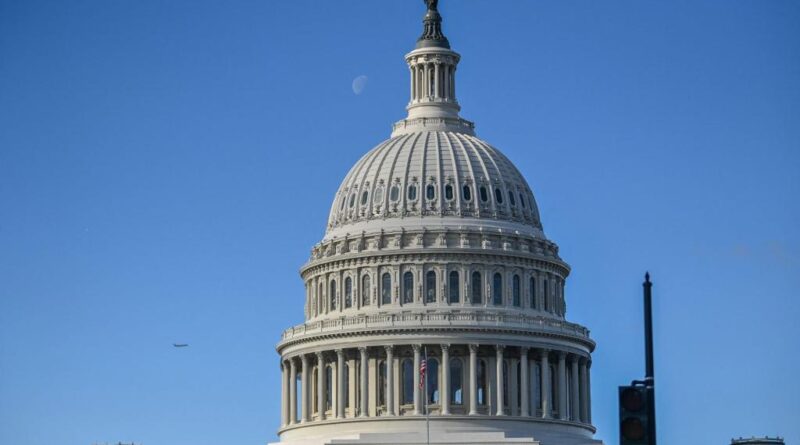Washington Prunes the ‘Christmas Tree’ with Taxpayer-Funded Perks

When politicians in Washington mention a Christmas tree this time of year, they’re not talking about a traditional tree. Instead, it’s a metaphor for legislation stuffed with financial allocations—essentially a display of cash.
The “bipartisan” bill was approved just before midnight last Friday, mere moments before a government shutdown would have occurred, and it could only be described as an embarrassment to anyone except the politicians who supported it.
Like clockwork, this scenario unfolds nearly every year, with no concern for the mounting national debt.
The initial bill comprised over 1,500 pages. However, after Elon Musk criticized it, it was whittled down to just over 100 pages, but that wasn’t enough to satisfy the proponents of government spending.
The bill passed last week (118 pages) may take some time to fully understand, but one thing is certain: it includes wasteful spending. It always does.
Rep. Bill Posey (R-Fla.) has put together a list of fiscal missteps that dates back to 2009.
This is just a small fraction of a much larger compilation. You could call it the “greatest hits” of government spending, an issue that spans both parties, and it will persist unless members of Congress seek a financial “detox.”
As Shakespeare once said: “What’s past is prologue.”
For example, over $104 million was allocated for a harbor and airport in the Aleutian Islands, an area with no connecting roads and merely 75 full-time residents.
And who could forget the infamous “bridge to nowhere”? That earmark cost taxpayers $223 million in 2004 for a bridge intended to link Ketchikan to Gravina Island, which has a population of about 50.
Nearly $50,000 was provided to the Hawaii Department of Agriculture to support the cacao industry during the Hawaiian Chocolate Festival. While it may seem minuscule, it represents the troubling principle of wasteful spending.
An audit of the Department of Agriculture revealed that about 300 employees misused millions of dollars meant for government expenses, making personal purchases with government credit cards.
Among these purchases were concert tickets for Ozzy Osbourne, tattoos, lingerie, bartending school tuition, car loans, and cash advances. The cost of conducting this audit was $100 million.
The Office of the Chief Information Officer at USDA spent $2 million on an intern program, hiring only one intern.
Still not outraged? There’s more.
An inspector-general audit showed that the Department of Energy could not account for $500,000 worth of “green energy” manufacturing equipment bought with stimulus funds.
The House Committee on Oversight and Government Reform estimated that New York state overcharged the federal government by $15 billion over two decades for Medicaid costs related to the developmentally disabled—far more than the total Medicaid budgets of 14 states.
Don’t tell me that reforms to entitlement programs aren’t possible.
Roughly $800,000 went to subsidize an International House of Pancakes restaurant in what was supposed to be an “underserved community,” but instead, it ended up funding an IHOP in the bustling Columbia Heights area.
One may wonder why funding pancakes is a federal responsibility, which leads to thousands of other questionable expenditures. Remember, it isn’t their money; it’s our money.
At least a pay raise for Congress members didn’t make it into last week’s bill. Instead of a raise, perhaps Congress members should face cuts for failing to perform adequately.
Maybe Vivek Ramaswamy and Elon Musk can tackle the wasteful spending that has contributed to our unsustainable $36 trillion debt, which includes $1 trillion in interest this year alone.
Many have attempted to curb the government’s spending habits and failed.
They may have a shot at succeeding, but the odds aren’t in their favor. It’s not called “the swamp” for nothing.
Enjoy the holiday season. Your politicians will.
Cal Thomas is a veteran political commentator, columnist, and author.



